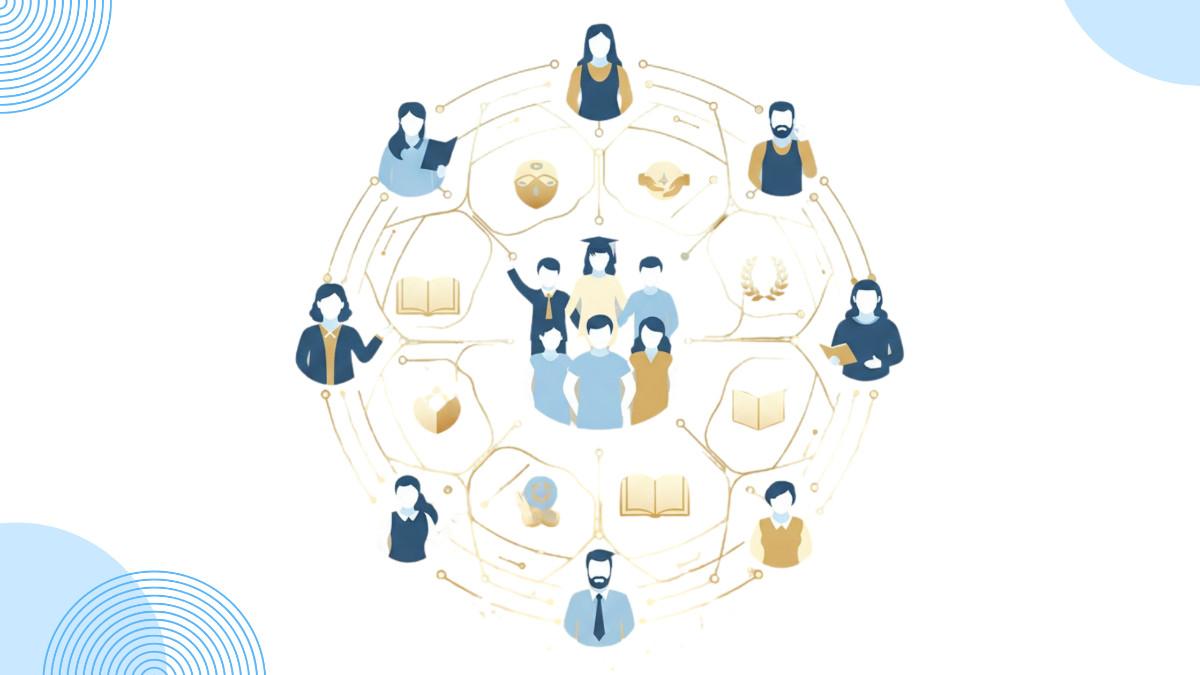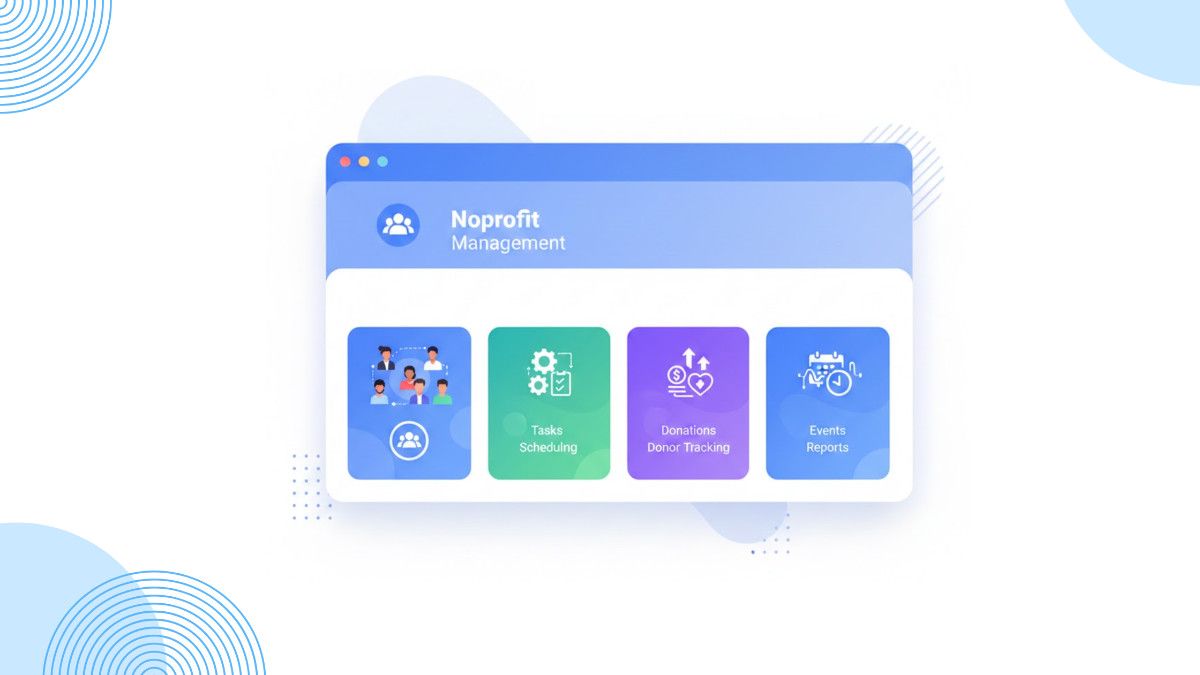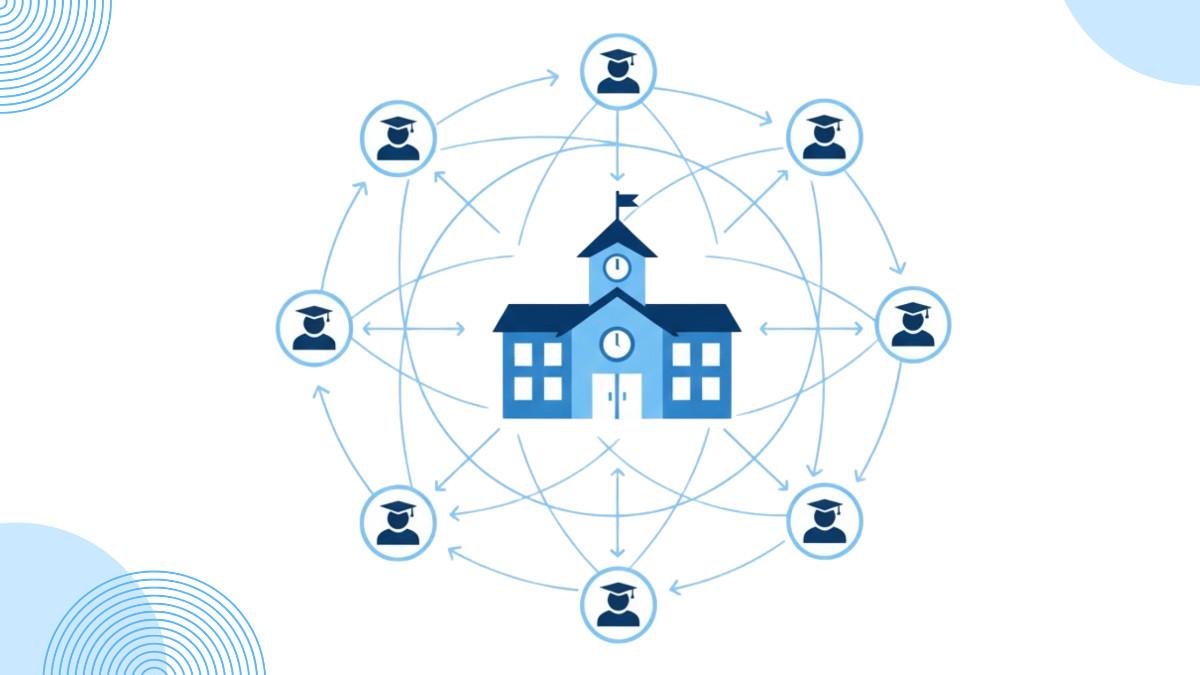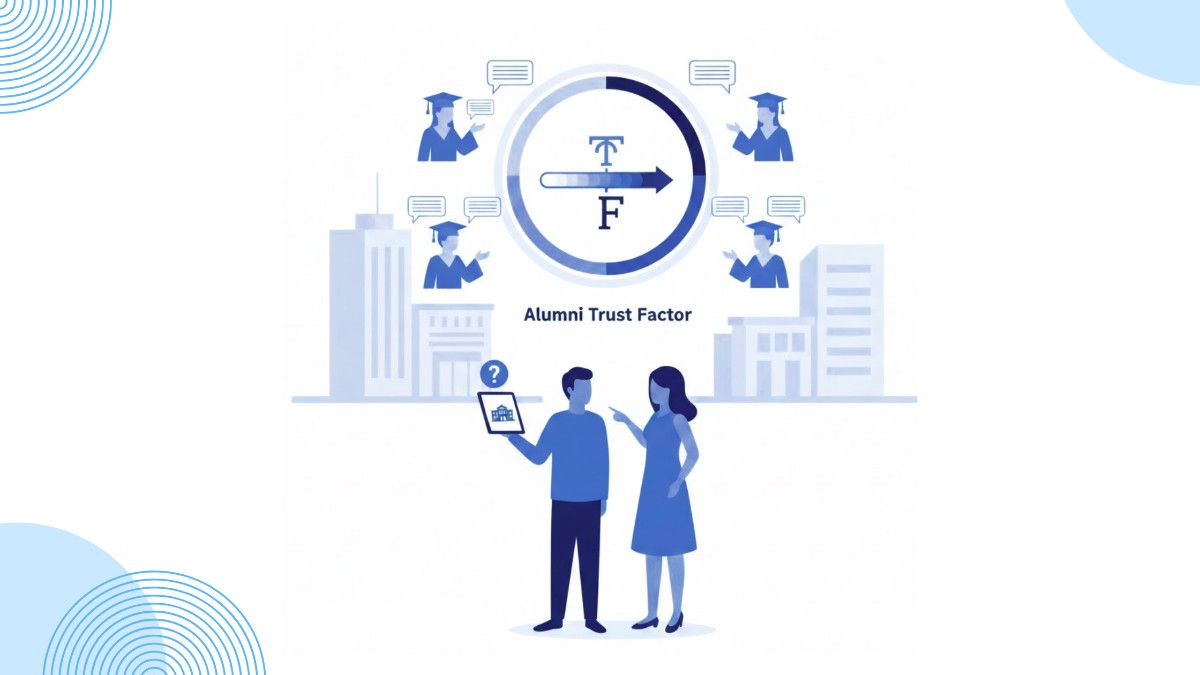Why Alumni Meets Matter More in 2026 (Purpose, Benefits & Impact)
Discover the purpose and benefits of alumni meets. Learn how virtual events foster networking, career growth, and lifelong alumni engagement
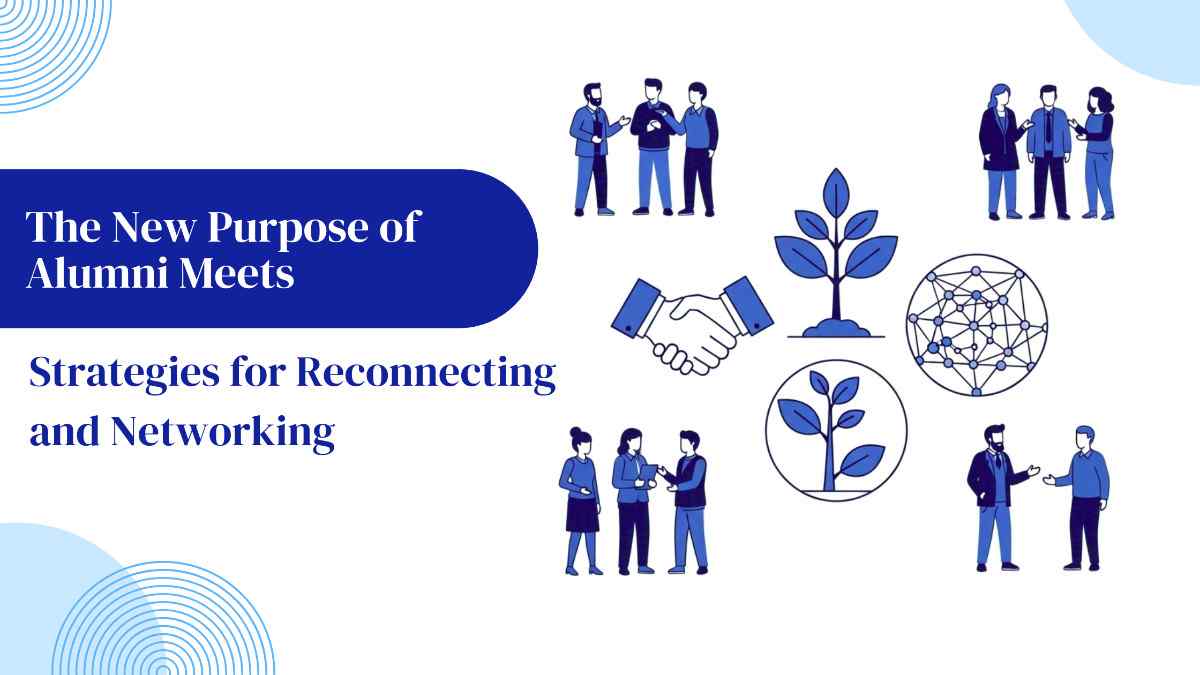
Alumni meet have evolved far beyond simple reunions. Today, they serve a deeper purpose. They are moments to reunite with old friends, connect with new opportunities, and grow both personally and professionally. These gatherings spark meaningful conversations, open doors to collaboration, and strengthen bonds that last a lifetime.
To support this evolving role, institutions increasingly rely on alumni engagement platforms such as AlmaShines, which help manage alumni data, coordinate events, and transform one-time reunions into long-term professional and community relationships.
Today, they serve a deeper purpose. So, what is an alumni meet in college? It’s a gathering of former students to reconnect, celebrate milestones, and foster collaboration that goes beyond nostalgia.
What Is an Alumni Meet?
Imagine you as an alumni walking through your old campus—the familiar banter in the air, the echo of shared laughter, and the warmth of faces you once saw every day. An alumni meet is often seen as a nostalgic reunion, but in today’s world, it’s so much more. It’s a powerful blend of connection, opportunity, and legacy. Whether you’re wondering what an alumni meet is, seeking the meaning behind alumni reunions, or exploring their purpose, this journey reveals how these gatherings have transformed into platforms for networking, lifelong learning, career growth, and institutional advancement.
What Is the Purpose of Alumni Meet?
The meaning of alumni meet goes far beyond a get-together—it’s a strategic and emotional reunion that offers lasting value to both alumni and the institution.
The purpose of an alumni meet is not only to reminisce but to create new opportunities for mentorship, collaboration, and lifelong engagement.
Why Alumni Meets Matter
In essence, what the concept of an alumni meet tries to achieve is create a lifetime, mutually beneficial relationship between an institution and its alumni. But the impact extends far beyond sentimentality. Here’s why they’re so much better:
- Reunion: Alumni reunions help graduates reconnect with former classmates, faculty, and advisors, and recapture the joys of their college years.
- Career Development: The activities are well suited for career development—alumni networking, job placements, mentorship, and even start business with them.
- Continuous Learning: Workshops, expert panel discussions, and industry talks expose the newest trends and skills to alumni, with continuous personal and professional development.
- Organizational Development: Alumni are brand ambassadors, promoting the quality of their alma mater. They recruit talent and support collaborations.
- Return and Giving Back: Scholarships, infrastructures, and donations for social causes are the outputs of alumni reunions, driving the institution forward.
- Guidance Counseling: Experienced alumni mentor current students, giving career counseling, internship, and the realistic outlook.
- Nostalgia: Most importantly, alumni reunions are nostalgia for past experiences, new connections, and belongingness.
The Historical Origins of Alumni Meets
Where It All Began
It started small. Alumni reunions in the early 1900s were casual affairs—garden parties, letter-writing campaigns, and end-of-the-year banquets. Consider the University of Leicester Old Students’ Association of the 1920s that arranged tea parties and Christmas parties. On the other side of the ocean, Michigan Tech’s alumni organization, which started in 1892, kept in contact via newsletters and reunions.
These early reunions were not just nostalgia. Alumni returned a favor to alma mater by donating books, assisting new students, and participating in special events. Friendship, fellowship, and the perpetuation of the institution’s spirit were in the spotlight.
The Evolution of Alumni Events
From Socials to Strategic Networks
Time, however, did change the intent of alumni meets. No longer nostalgia serves, the functions became the strategic forums for:
- Career Networking: Alumni on multiple campuses network, providing career openings, mentorship, and business alliances.
- Philanthropy: Campuses rely on alumni for scholarships, buildings, and social needs.
- Institutional Branding: Alumni achievement brings campuses more visibility, new students, and partners.
- Lifelong Learning: Panels and workshops led by industry professionals inform alumni of the latest in the field and skill sets.
Alumni engagement expanded to include advisory boards, startup ventures, and global partnerships. Party time was no longer building a successful, networked community.
The Digital Transformation of Alumni Meets
Leap into the online space. The pandemic accelerated a natural evolution in process: alumni meetups went digital. Distance was no longer a concern overnight.
Why Virtual and Hybrid Alumni Meets Work
- Accessibility: People from all over the world can attend, not merely locals.
- Cost-Effectiveness: No travel or logistical costs.
- Engagement: Breakout sessions, real-time polls, and online engagement keep them engaged.
- Personalization: Websites powered by artificial intelligence now personalize invitations and networking based on individual preference.
Alumni gatherings and virtual alumni events have flattened alumni engagement more evenly than before, made it easier to stay connected and active.
Future Trends in Alumni Meets:
What’s Shaping Alumni Meets Today and Tomorrow
- Hybrid Events
Live and virtual events brought together in perfect sync. - Personalized Experiences
AI-driven event recommendations and connection invitations. - Gamification
Badge, leaderboard, and reward engagement on the internet. - Interactive Alumni Portals
One-stop portal for job posts, networking, and event registration. - Social Media Integration
Live Alumni communities on LinkedIn, WhatsApp, and branded apps. - Early Engagement
Student engagement prior to graduation to foster long-term loyalty.
Example
Picture this: a campus dinner with alumni from five continents participating via live stream, sharing their experiences in real time. Or logging onto an alumni portal that recommends a webinar on a topic of interest to your career. These events are already becoming the standard.
How to Make Alumni Meets Unforgettable
Tips for Event Planners and Attendees
Whether you’re organizing or attending, here’s how to make the most of any alumni meet:
- Share Real Stories: Highlight real success and stories, not names.
- Use Multimedia: Images, videos, and interactive elements keep the energy high.
- Make It Personal: Segment your audience and send personalized invitations.
- Get Them Engaged: Live trivia, Q&As, and contests include everyone.
- Follow Up: Create lasting connections with thank-you emails, event recap, and ongoing conversation.
Real-Life Impact of Alumni Meets:
Alumni reunions aren’t just networking—they spark change.
Take the real-life example of Andhra University alumni reunion in 2018, which saw 10,000+ alumni attend, growing their active alumni base from 6,000 to 15,000 within a month. More than a one-day success, it became a turning point—enabling sustained alumni engagement, mentoring, and giving back.
The Emotional Side of Alumni Meets
Why attend an alumni meet? Because it revives old connections, creates new ones fuels personal and professional growth in unexpected ways.
Networking Bigger Than Anything Else
While career advancement is of utmost significance, recollections and friendships forged at the tailgates are just as precious. Catching up with old roommates, group shots at trendy campus spots, and impassioned speeches about college life make memories for a lifetime.
For others, alumni events are a walk down memory lane, reconnecting with friends like family, and having their backs during life’s changes. In an increasingly digital era, these face-to-face connections are more important than ever.
The Ripple Effect of Alumni Engagement on Institutions
How Alumni Engagement Builds Strong Institutions
A strong alumni network benefits everyone:
- Increased Exposure: Alumni philanthropy enhances institutional reputation and new student recruitment.
- Expanded Enrollment: Alumni word of mouth is a powerful recruitment agent.
- Strategic Partnerships: Alumni firms frequently partner with their alma mater in providing access to research, internships, and innovation.
- Governance and Leadership: Alumni typically join university boards and advisory groups and create the future of the institution.
- For a real-life example of strong alumni engagement in action, explore the Vidyalankar Institute of Technology alumni success story.
Giving Back: How Alumni Support Transforms Campuses
Alumni engagement is all philanthropy. From donations for charitable causes, such as new buildings, to scholarship and social cause donations, alumni gifts define campuses and communities. The majority of the world’s most esteemed universities owe it all to graduates.
The Lasting Power of Alumni Connections
Alumni events have come a long way from a cozy garden party to worldwide, computerized networks. But at the end of the day, they remain about one thing: connection. Either logging in on your home computer or shaking hands in an university auditorium, alumni events are where memories are created over again, opportunities are created, and the future of your alma mater is determined—one connection at a time.
So the next time a card arrives in the mail, don’t swipe left—join in. Alumni participation’s future is bright and you’re part of it.
Frequently Asked Questions (FAQs)
Virtual alumni meets remove geographical barriers, enable global participation, reduce costs, and include interactive features such as live polls, webinars, and networking sessions.
Alumni meets provide networking opportunities, mentorship, job referrals, and collaborations, which support personal and professional development for graduates.
Alumni associations are formal bodies that manage alumni engagement through events, networking, fundraising, and mentorship. They maintain lifelong connections and foster collaboration between alumni and institutions.
Yes. Organizations host alumni meets for former employees to maintain connections, encourage re-hiring, and build brand loyalty, similar to how colleges engage their graduates.
Hybrid events, AI-driven personalization, gamification, interactive alumni portals, social media integration, and early engagement programs are the trends transforming alumni meets in 2026.
Let’s discuss the idea
Join hundreds of companies transforming their corporate communities with Almashines



